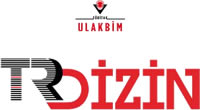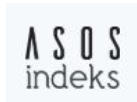Eğitim Kurumlarında Yönetsel Tarz ve Örgütsel Mutluluk(Managerial Style in Educational Institutions and Organizational Happiness)
DOI:
https://doi.org/10.15659/ankad.v4i2.102Anahtar Kelimeler:
Yönetsel tarz- örgütsel mutluluk- öğretmen mutluluğu- eğitim kurumlarıÖzet
Bu araştırmada eğitim kurumlarındaki yönetim tarzının öğretmenlerin mutluluğu üzerine etkisinin boyutları incelenmeye çalışılmıştır. Elde edilen önemli bulgulardan biri eğitim düzeyinin yükselmesiyle olumsuz duyguların meydana gelmesinin azaltılabileceğidir. Bu bilgiye dayanarak öğretmenlerin lisansüstü eğitim imkânlarının teşvik edilmesinin önemli olduğu sonucuna varabiliriz. Ayrıca çalışmada ortaya çıkan diğer dikkat çeken bulgu ise öğretmenlerin kurumdaki çalışma sürelerinin artmasıyla yöneticiyi iş odaklı görme algılarının da artmasıdır. Ancak bu sonuç öğretmenlerin yönetsel tarz algılarını tek çatı altında toplamıştır. Yani, öğretmenlerin penceresinden bir yönetici ne kadar insana odaklı ise bir o kadar da işe odaklıdır ve net bir ayrım yoktur. Bu bilginin sonucunda araştırmanın temel çıkış noktasıyla ilgili yönetsel tarz ile eğitim kurumlarındaki öğretmenlerin mutluluğu arasında anlamlı bir ilişkinin olduğu görülmektedir. Bu bağlamda örgütsel mutluluğu etkileyen faktörler yönetsel tarzın iki alt boyutu olan iş ve insan odaklılık yönünden incelenmiştir.
Araştırmada ilişkisel tarama modeli kullanılmıştır. Araştırma evreni 2019–2020 eğitim öğretim yılında Manisa ili Kula ilçesindeki resmi anaokulu, ilkokul, ortaokul ve liselerde görev yapan 584 öğretmenden oluşmaktadır. Araştırmanın örneklemini ise Manisa ilinin Kula ilçesinde görev yapan 362 öğretmen oluşturmaktadır. Araştırmada kolay ulaşılabilir örnekleme yolu kullanılmıştır. Araştırmada öğretmenlerin örgütsel mutluluk düzeylerini belirlemek amacıyla Demo ve Paschoal (2013) tarafından geliştirilen ve Arslan ve Polat (2018) tarafından Türkçeye uyarlaması yapılan ‘Örgütsel Mutluluk Ölçeği (ÖMÖ)’’ ile öğretmenlerin yönetsel tarz düzeylerini belirlemek amacıyla da Yücel ve Demirhan (2010) tarafından geliştirilen ‘Okul Yöneticisi Çalışma Tarz Belirleme Ölçeği’’ kullanılmıştır. Araştırma verilerinin analizinde yüzde, aritmetik ortalama, frekans, standart sapma değerleri hesaplanmış, tek yönlü varyans analizi, t-Testi ve Pearson Momentler Çarpımı Korelasyon Analizi kullanılmıştır. Demografik özeliklerde ise; cinsiyet, yaş, medeni durum, mesleki branş, mesleki kıdem yılı, okuldaki çalışma süresi ve eğitim seviyesi dikkate alınmıştır. Örgütsel mutluluğu etkileyen faktörler ile demografik özellikler arasında anlamlı farklılıklar olup olmadığı ve yönetsel tarz algısıyla örgütsel mutluluk seviyesi istatistiksel olarak analiz edilmiştir.
Referanslar
Akbulut, B. (2015). Ortaöğretim kurumlarında görev yapan öğretmenlerin örgütsel imaj algıları ile iş doyumu düzeyleri arasındaki ilişki. (Yayınlanmamış doktora tezi). Hacettepe Üniversitesi, Ankara.
Arslan, Y. (2018). Öğretmenlerin farklılıkların yönetimi yaklaşımlarına ilişkin algıları ile örgütsel mutluluk algıları arasındaki ilişki. (Yayınlanmamış doktora tezi). Kocaeli Üniversitesi, Kocaeli.
Bakker, A. B., Westman, M., van Emmerik, I. H., Härtel, C. E. & Page, K. M. (2009). Discrete emotional crossover in the workplace: The role of affect intensity. Journal of Managerial Psychology. 24 (3), 237-253.
Başaran, E. İ. (1992). Yönetimde İnsan İlişkileri. Ankara: Gül Yayınevi.
Bektaş, M. (2014). Yönetim tarzlarının örgütlerdeki informal iletişim kanallarına etkisi: Burdur ili kamu kurumları örneği. (Yayınlanmamış doktora tezi). Süleyman Demirel Üniversitesi, Isparta.
Brief, A.P. & Weiss, H.M. (2002). Organizational behavior: Affect in the workplace. Annual Review of Psychology, 53(1), 279-307.
Bulut, A. (2015). Ortaöğretim öğretmenlerinin örgütsel mutluluk algılarının incelenmesi: Bir norm çalışması. (Yayınlanmamış doktora tezi). Gaziantep Üniversitesi Eğitim Bilimleri Enstitüsü, Gaziantep.
Büyüköztürk, Ş., Kılıç Çakmak, E., Akgün, Ö. E., Karadeniz, Ş., & Demirel, F. (2012). Bilimsel araştırma yöntemleri (Onüçüncü baskı). Ankara: Pegem Akademi Yayınları.
Cropanzano, R. & Wright, T.A. (1999). A 5-year study of change in the relationship between well-being and job performance. Consulting Psychology Journal: Practice and Research, 51(4), 252.
Csikszentmihalyi, M. (2004). İyi iş: Liderlik, mutluluk ve anlam oluşturma. (Çev. Ahmet Kardam). İstanbul: Acar Matbaacılık.
Demirhan, G. (2010). Eğitim yöneticilerinin yönetsel tarzları ile öğretmenlerin adanmışlık ve tükenmişlik düzeyleri arasındaki ilişki. (Yayınlanmamış yüksek lisans tezi). Uşak Üniversitesi Sosyal Bilimler Enstitüsü, Uşak.
Döş, İ. (2013). Mutlu okul. Eğitim ve Bilim, 38(170), 266-280.
Eby, L. T., Maher, C.P. & Butts, M.M. (2010). The intersection of work and family life: The role of affect. Annual review of psychology, 61, 599-622.
Eren, E. (2006). Örgütsel davranış ve yönetim psikolojisi (9. Baskı). İstanbul: Beta Basım Yayın Dağıtım.
Ertong, C. (2018). Okullarda öğretmenlerin örgütsel mutluluğunu etkileyen faktörlerin incelenmesi. (Yayınlanmamış yüksek lisans tezi). Gaziantep Üniversitesi Eğitim Bilimleri Enstitüsü, Gaziantep.
Frey, B. & Stutzer, A. (2013). Recent developments in the economics of happiness. Cheltenham: Edward Elgar Publishing.
Gavin, J. H. & Mason, R.O. (2004). The virtuous organization: the value of happiness in the workplace. Organizational Dynamics, 33(4), 379-392.
Gökdemir Dumludağ, Ö. (2011). Mutluluk ve iktisadi parametreler üzerine bir inceleme. (Yayınlanmamış doktora tezi). İstanbul Üniversitesi Sosyal Bilimler Enstitüsü, İstanbul.
Güllü, S. (2018). Spor işletmelerinde çalışan mutluluğu. International Journal of Social Sciences and Education Research, 4(3), 547-559.
Hartzell, J. C., Sun, L. & Titman, S. (2006). The effect of corporate governance on investment: evidence from real estate investment trusts. Real Estate Economics, 34(3), 343-376.
Helliwell, J., Layard, R & J. Sachs (2017), World happiness report 2017. Sustainable Development Solutions Network, New York, http://worldhappiness. report/ed.
Nelson, D. W. & Knight, A. E. (2010). The power of positive recollections: Reducing test anxiety and enhancing college student efficacy and performance. Journal of Applied Social Psychology, 40(3), 732-745.
Paschoal, T. & Tamayo, A. (2008). Construction and validation of the work well-being scale. Avaliação Psicológica, 7(1), 11-22.
Saenghiran, N. (2013). Towards enhancing happiness at work: A case study. Social Research Reports, (25), 21-33.
Staw, B.M., Sutton, R.I. & Pelled, L.H. (1994). Employee positive emotion and favorable outcomes at the workplace. Organization Science, 5(1), 51-71.
Şahin, A. (2004). Yönetim kuramları ve motivasyon ilişkisi. Selçuk Üniversitesi Sosyal Bilimler Enstitüsü Dergisi, (11), 523-547.
Tahtacı Koç, D. (2013). Ortaöğretim yöneticilerinin yönetim tarzlarının bilgi yönetimleriyle ilişkisi. (Yayınlanmamış yüksek lisans tezi). Trakya Üniversitesi Sosyal Bilimler Enstitüsü, Edirne.
Warr, P. (2007). Work, happiness and unhappiness. New Jersey: Lawrence Erlbaum Associates.
Wesarat, P., Sharif, M. Y. & Majid, A. H. (2015). A conceptual framework of happiness at the workplace. Asian Social Science, 11(2), 78-88.
Wright, T. A., Bonett, D. G. & Sweeney, D.A. (1993). Mental health and work performance: Results of a longitudinal field study. Journal of Occupational and Organizational Psychology, 66(4), 277- 284.
Yayınlanmış
Nasıl Atıf Yapılır
Sayı
Bölüm
Lisans
Telif Hakkı (c) 2023 Anadolu Kültürel Araştırmalar Dergisi (ANKAD)

Bu çalışma Creative Commons Attribution-NonCommercial 4.0 International License ile lisanslanmıştır.













